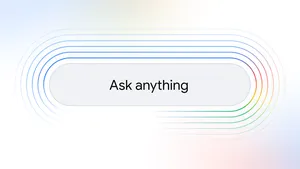Helping you along your Search journeys
We’ve spent the last 20 years optimizing Search so it works really well for getting quick information. You ask what the capital of Costa Rica is, and we’ll tell you it’s San José. But in life we often take longer journeys, and people turn to Search for help in these moments too.
Many searches are related to longer sessions that span multiple days, with people coming back to Search to find the latest updates on a topic or explore the range of content available. For example, you might be planning a trip, and searching for information about a destination over the course of a month. Or perhaps you regularly search for “easy dinner recipes” to help you plan you meals for the week.
We can do better to help in these journeys, so today we’re sharing new features that help you resume tasks where you left off, keep track of ideas and content that you found useful, and get relevant suggestions of things to explore next. All of this marks a fundamental transformation in the way Search understands interests and longer journeys to help you find information.
Retrace your steps with activity cards
Retracing your steps online can be really difficult. While we’ve always made your Search history available in your account settings, you should be able to access it when you’re searching, so it can be useful to you in the moment.
Now, a new activity card will help you pick up from where you left off in Search. When you revisit a query related to a task you've started in the past, we’ll show you a card with relevant pages you’ve already visited and previous queries you’ve done on this topic. This helps you retrace your steps when you might not remember which sites had that useful information you’d found earlier.
We’re intelligently showing this card only when it’s useful; it won’t appear for every search. And you’ll have full control over it—you can easily remove results from your history, pause seeing this card, or choose not to see it all together. This new activity card will be available in Search later this year.
Keep track of your searches with Collections
Another way to more easily navigate long search journeys is by adding useful content to Collections. Collections in Search help you keep track of content you’ve visited, such as a website or article or image, and quickly get back to it later.
Now, with an improved Collections experience, you can add your content from an activity card directly to Collections. This makes it even easier to keep track of and organize the content you want to revisit.

We’ve also added content suggestions to help you explore topics further, based on the other content you’ve saved and things you’ve searched for. We’ll start rolling out this new Collections experience later this fall.
Dynamic organization of Search results
Every search journey is different, and especially if you’re not familiar with the topic, it’s not always clear what your next search should be to help you learn more. So we’re introducing a new way of dynamically organizing search results that helps you more easily determine what information to explore next.
Rather than presenting information within a set of predetermined categories, we can intelligently show the subtopics that are most relevant to what you’re searching for and make it easy to explore information from the web, all with a single search.
So if you’re searching for Pugs, for example, you’ll now be able to see the tabs for the most common and relevant subtopics, like breed characteristics and names, right at the top. But if you search for something else, even a different kind of dog, like Yorkshire Terriers, you’ll see options grooming tips and breed history.

The best part about this feature is that it continues to stay fresh and learns over time. As new information is published to the web, these tabs stay up to date to reflect what’s most relevant to that topic. This dynamic page organization is already live for a variety of topics, and we’ll expand to more in the future.
A new Topic Layer in the Knowledge Graph
To enable all of these updates, Search has to understand interests and how they progress over time. So we’ve taken our existing Knowledge Graph—which understands connections between people, places, things and facts about them—and added a new layer, called the Topic Layer, engineered to deeply understand a topic space and how interests can develop over time as familiarity and expertise grow.
The Topic Layer is built by analyzing all the content that exists on the web for a given topic and develops hundreds and thousands of subtopics. For these subtopics, we can identify the most relevant articles and videos—the ones that have shown themselves to be evergreen and continually useful, as well as fresh content on the topic. We then look at patterns to understand how these subtopics relate to each other, so we can more intelligently surface the type of content you might want to explore next.
All of this enables experiences that make it easier than ever to explore your interests, even if you don’t have your next search in mind. We’re excited for the potential of this technology to provide more opportunities for discovery and exploration in Search.





